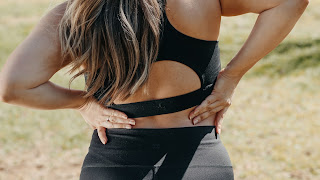Kidneys are bean-shaped organs located high on the rear wall of the abdominal cavity. Their function is the elimination of waste substances from the blood through the production of urine. Kidneys are the channels through which approximately 40 to 60 percent of the water which is discarded passes out of the body.
These organs separate and incorporate digested products of protein, substances in the blood into the urine. Kidneys also help to keep a fine balance between acid and alkaline conditions in the tissues by removing excess acid.
Image By: iStockPhoto.com
Not only that, but they also maintain the necessary relation between salt and water in the body. Disturbance of this balance leads to over retention of moisture, or to insufficiency of water. Which may cause acidosis, dehydration, or reduce the necessary chemical changes.
Kidneys are unique because of the amount of work they perform in a small area. Each kidney is only about 12cm (4inc) high. However, 600 or more quarts of blood or 150 gallons pass through them in 24 hours.
Kidney's Disease
Urinary Tract Stones
This disease is common and found in both men and women. There are different types of stones. Each made up of different combinations of chemicals regularly discharged by the kidneys. When urine is concentrated, it can predispose to the formation of stones. Someone who doesn't take enough liquids may develop this condition.
Another theory is that stones may result from an abnormal change occurring in the colloid material present in the urine. This material normally prevents the chemicals there from grouping together to form stones.
Gout is a common cause of kidney stones. The high uric acid content of the blood that is secreted into the urine by a gout sufferer will sometimes form uric acid stones.
Symptoms
It depends on the location. This location and movement determine whether the pain is steady, dull, and aching, or excruciatingly sharp.
- A non-obstructing kidney stone may cause a steady, dull ache in the back and kidney area
- Stone entering the ureter causes sudden excruciating pain, radiates toward the groin.
- Stone in the ureter, if halted there long enough may damage the kidney through backup pressure
- Stone in the bladder may break up and pass out as minute gravel
- Stone in the urethra causes sharp pain
Complications
Prolonged or repeated attacks can cause a kidney to become enlarged and eventually stop functioning. this can result in blood pressure changes, uremia, or infection. Without sufficient drainage, kidney infections are very severe and can result in loss of the kidney.
Images By: Pexels.com
Improve Kidney Health
Stay Hydrated
Drinking plenty of water will help your kidneys function. Your urine should be in the color of straw. If it's any darker it could be a sign of dehydration. In hot weather, or when exercising vigorously, you also need to drink more water than usual to make up for the fluid lost by sweating.
Eat Healthy Diet
Most kidney problems arise from other medical conditions like high blood pressure, diabetes, and cardiovascular disease. This is the reason why you should have healthy eating habits to control weight and blood pressure. Preventing diabetes and high blood pressure will help keep kidneys in good condition.
As we know, regular physical activity can burn calories needed to help in weight and fat loss. Even just five minutes of simple exercise such as jogging, walking up and downstairs, or yoga will help improve your body function. But do be mindful of how much exercise you do. When you’re not in good shape or just starting, pick a workout that suits your condition.
Pay Attention to Your Supplements and Meds
Excessive amounts of certain supplements or even herbal extracts may be harmful to your kidneys. If you have kidney disease or decreased kidney function, taking just a few doses can harm your kidneys. When in doubt, check with your doctor or pharmacist.








Comments